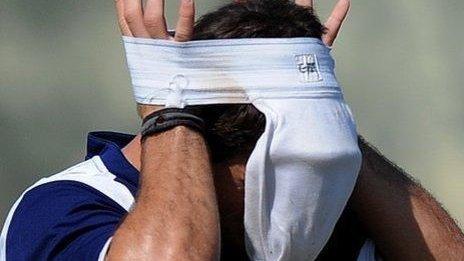Women's Sport Week: sportswomen share their experiences
- Published
BBC Sport invited some of the most iconic women in British sport to write down their thoughts and share their experiences as a leading female sports star.
From an 11-time Paralympic gold medallist to the mother of Great Britain's most successful tennis player, and a striker who is representing England at this month's FIFA Women's World Cup in Canada.
Their remarkable stories are listed below:
Nicole Cooke on equal pay and corruption
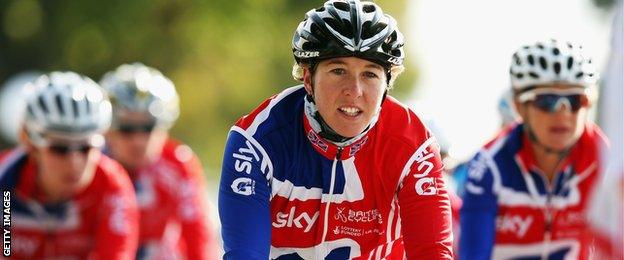
Nicole Cooke won an Olympic gold medal and World Championship crown on the road in 2008
Nicole Cooke became the first cyclist, male or female, to become the road race world champion and Olympic gold medallist in the same year. In her column, she talks about why women should receive equal pay in the sports world and how it is often open to corruption.
At London 2012, I was part of the British Olympic road race team working for Lizzie Armitstead as she claimed Great Britain's first medal of the Games.
It was four years on from my triumph in the same event in Beijing and it was incredible to see the huge crowds lining the roads in London and Surrey in the pouring rain, willing us on. It vindicated what I had said many times - women's road cycling was a spectacle people wanted to see.
The public are actually far more fair-minded than they are painted by many a sports journalist or marketing executive. They value their daughters' achievements as highly as those of their sons.
Tanni-Grey Thompson on the power of sport
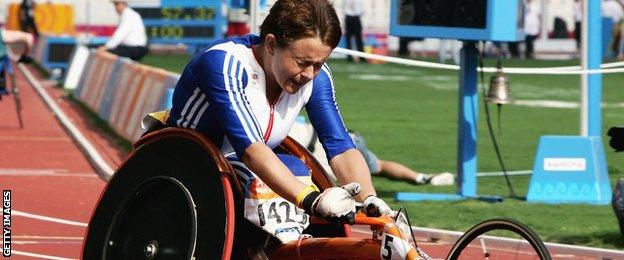
Baroness Tanni-Grey Thompson competed in Paralympic events between 1988 and 2007
After winning 16 Paralympic medals, including 11 golds, and six London Marathon titles during her wheelchair racing career, Baroness Tanni Grey-Thompson has swapped the racing track for the House of Lords, where she now sits as a cross-bench peer.
Growing up in Wales, I was probably quite a shy child and sport gave me confidence and something to focus on. I really liked school but I also really loved that physical element of training.
I don't remember a point where I didn't want to be involved in sport. It was a really natural thing for me.
As a result, sport has given me everything that I have got now.
Nicola Adams on the need for role models
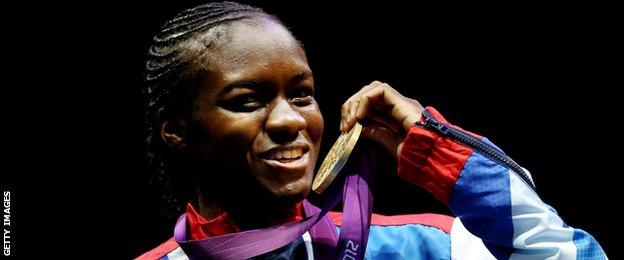
Nicola Adams is the reigning Olympic, Commonwealth and European boxing champion in the 51kg category
At London 2012, Nicola Adams became the first female to win an Olympic boxing gold medal. Adams was recently awarded Role Model of the Year by the Women's Sport Trust, and she talks about the impact successful sportswomen can have on the lives of others and explains why it's important for women to be inspired by other women.
It will come as no surprise to learn I had no female boxers to look up to when I was younger. My heroes were all men.
I grew up in a boxing-mad family in Leeds, idolising Muhammad Ali and Sugar Ray Leonard. I remember watching videos of their fights and thinking it would be cool to do the same.
I liked their personalities, their flashy styles, the way they entertained the crowd.
Would I have benefitted from having a female boxer to idolise? It's not something I thought about when I was 12 years old.
Tracey Crouch on sexism in football
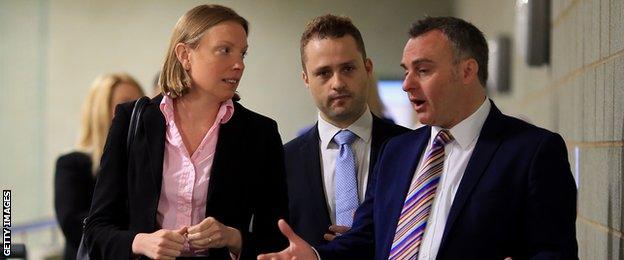
Tracey Crouch is an FA qualified football coach and runs a young girls team
Sports Minister Tracey Crouch MP talks about her role as a football coach and why she feels sport must raise the equality bar.
I'm an FA-qualified football coach, and for the past eight years I've been managing a girls' team in my constituency.
Over that time I've seen the players grow from nervous girls into strong young women. But I've also seen how they've grown as people, how the game we love has taught them about leadership, teamwork and determination, boosted their self-esteem, even helped them through difficult times.
Sport can do incredible things for women and girls, but too often we're pushed to the sidelines. When I was a girl, I was told that I shouldn't play football. That getting muddy and sweaty isn't "ladylike".
Beth Tweddle on puberty- ' I was embarrassed'
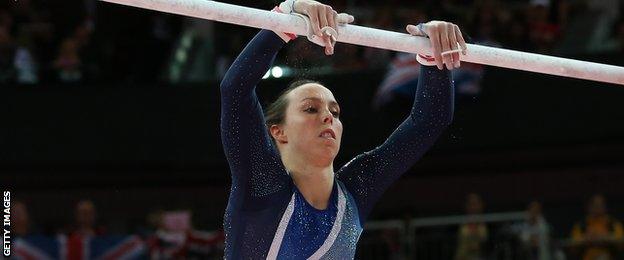
Beth Tweddle was an uneven bars specialist in gymnastics, winning a bronze medal at London 2012
Three-time world gymnastics champion Beth Tweddle talks about how puberty affected her as a young gymnast and how she managed to navigate the awkward life stage during her sporting career.
From the age of five or six you're in a leotard so there's not a lot of places to hide.
I developed quite early, I was about 12, and I remember being quite shy and quite embarrassed because my body had developed and a lot of my team-mates hadn't, but my coach took me to one side and told me to be proud of my body and that everyone develops, just at different rates, so she kind of turned me round.
Judy Murray on the growth of women in tennis
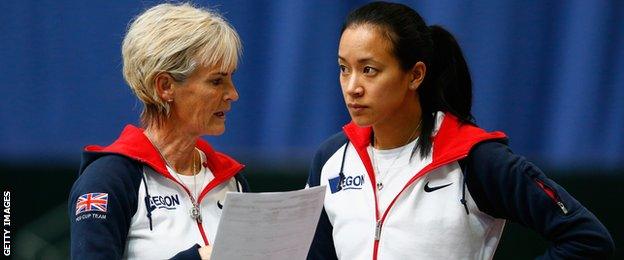
Judy Murray is the captain of Great Britain's Fed Cup team
Judy Murray is a tennis coach and captain of the Great Britain Fed Cup team. She talks about her coaching career and what needs to change to enable more women to have careers in sport.
There were three significant moments in my coaching career where I was given opportunities which probably set me on the road to where I am now, and all of those opportunities were created by women.
The first was when I applied for a place on the Lawn Tennis Association's brand new performance coach award in 1994.
There were 20 places available - 18 went to men and just two to women. I was lucky enough to be one of those two, despite having little performance coach experience, and I'm sure I was given the chance because the head of the coach education department was a woman.
Eniola Aluko on the FIFA Women's World Cup
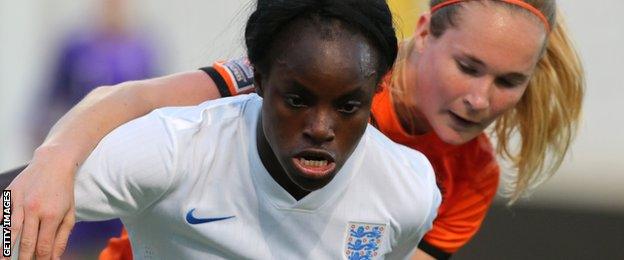
Eniola Aluko made her England debut in 2004 and has scored 32 goals in 90 appearances
England and Chelsea forward Eniola Aluko will be writing a regular column for the BBC Sport website throughout the World Cup. She explains why she thinks it could be as big as the men's World Cup and asks how it could have an impact on the growing status of female players.
Right before I was about to play my first World Cup match against Japan in 2007, I can remember turning to my England team-mate Jill Scott in the tunnel and giving her a look that said: 'Is this really happening?'
That tournament was in China, so the crowds were big, and I think there were 27,000 at that game in Shanghai, but the 2015 World Cup promises to be on another scale.
Paula Radcliffe on competing as a mother
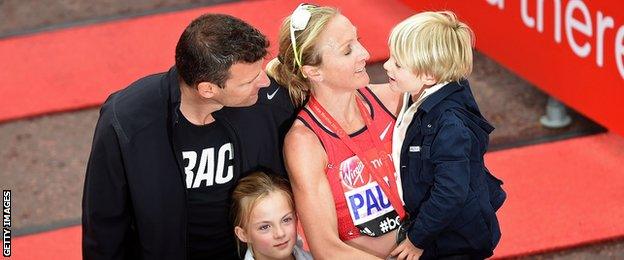
Paula Radcliffe has a daughter named Isla and a son called Raphael with husband Gary
Marathon world record holder Paula Radcliffe became pregnant when she was a successful athlete. The mother-of-two talks about her decision to put her career on hold and explains how she went on to juggle motherhood with a successful running career.
Most women are aware of their biological clock and know the decision to have children or not is a choice they will have to make. There's no set formula, everyone has to make the decision that's right for them.
Becoming a mother was something I had always envisaged doing. Even before I had aspirations of being an athlete, I imagined having children and it wasn't something I wanted to sacrifice. But I didn't foresee a time when I wouldn't be running so I knew I'd have to work it in somehow.
- Published7 June 2015
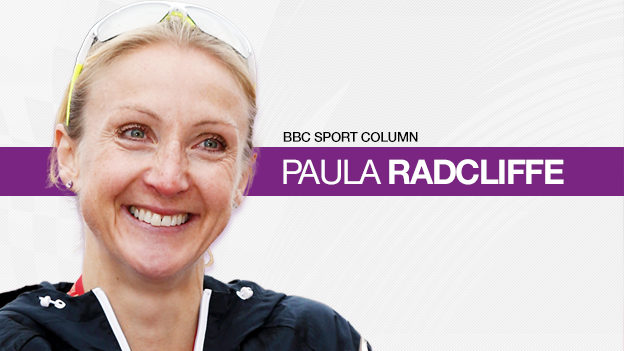
- Published6 June 2015
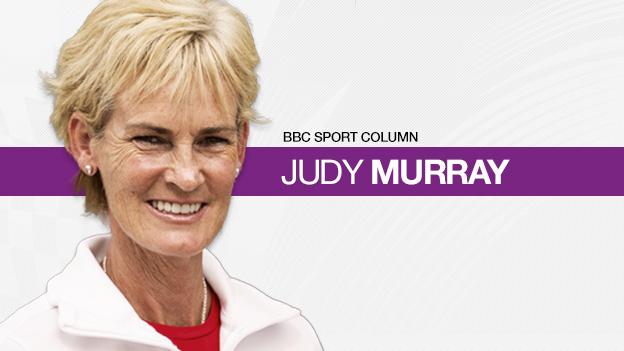
- Published5 June 2015
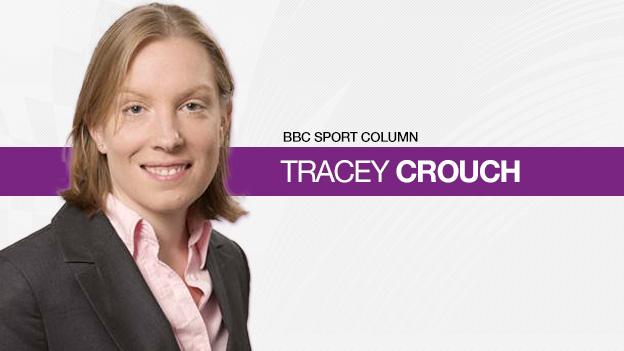
- Published5 June 2015
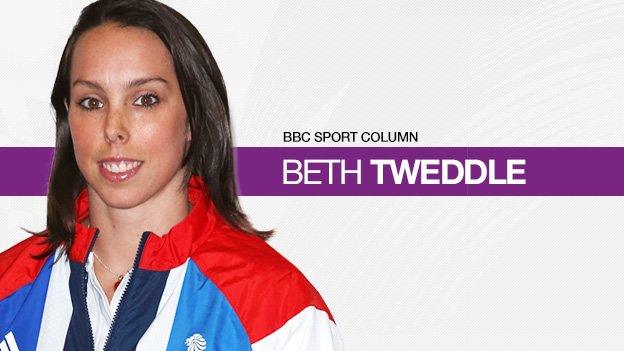
- Published4 June 2015
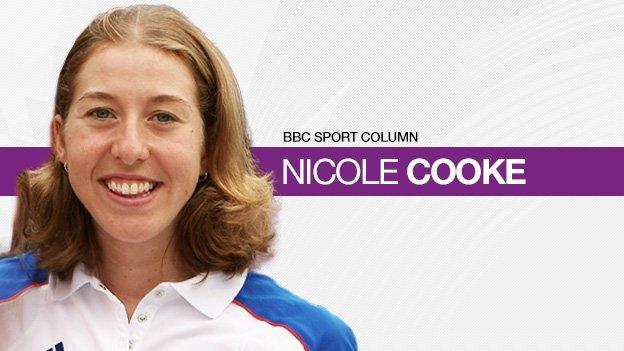
- Published3 June 2015
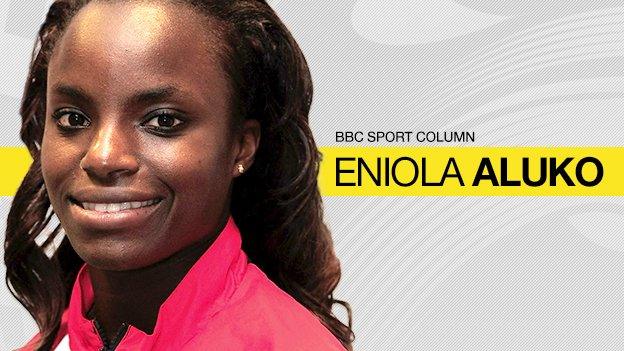
- Published2 June 2015
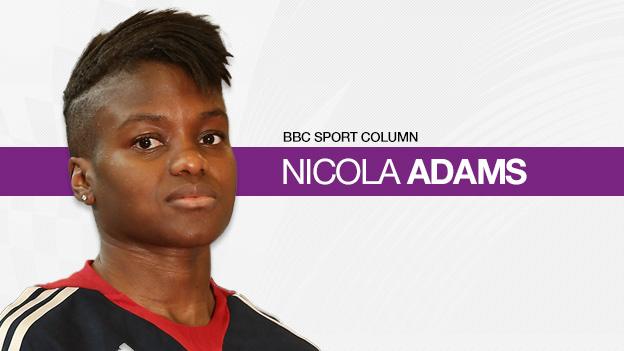
- Published1 June 2015
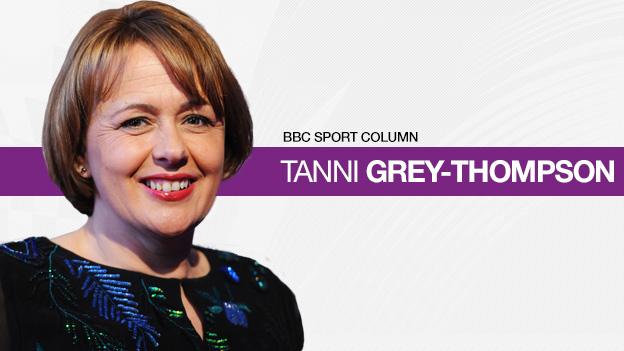
- Published4 June 2015
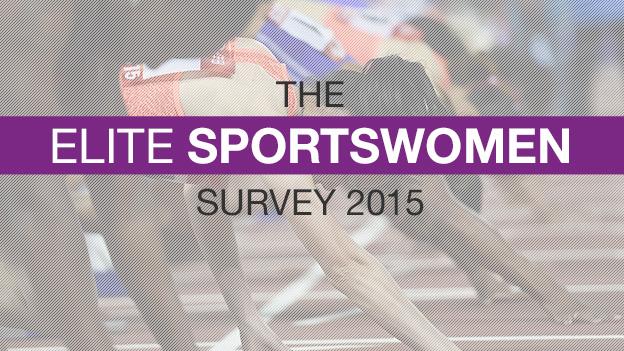
- Published1 June 2015
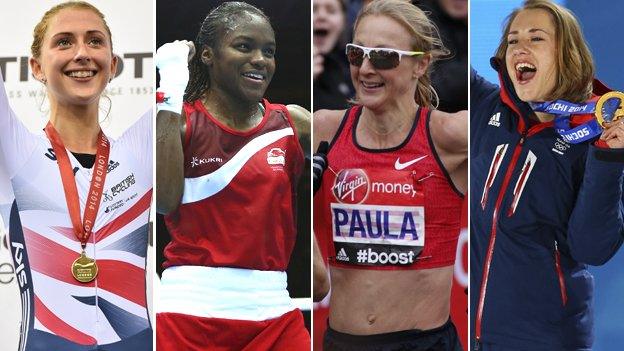
- Published1 June 2015
